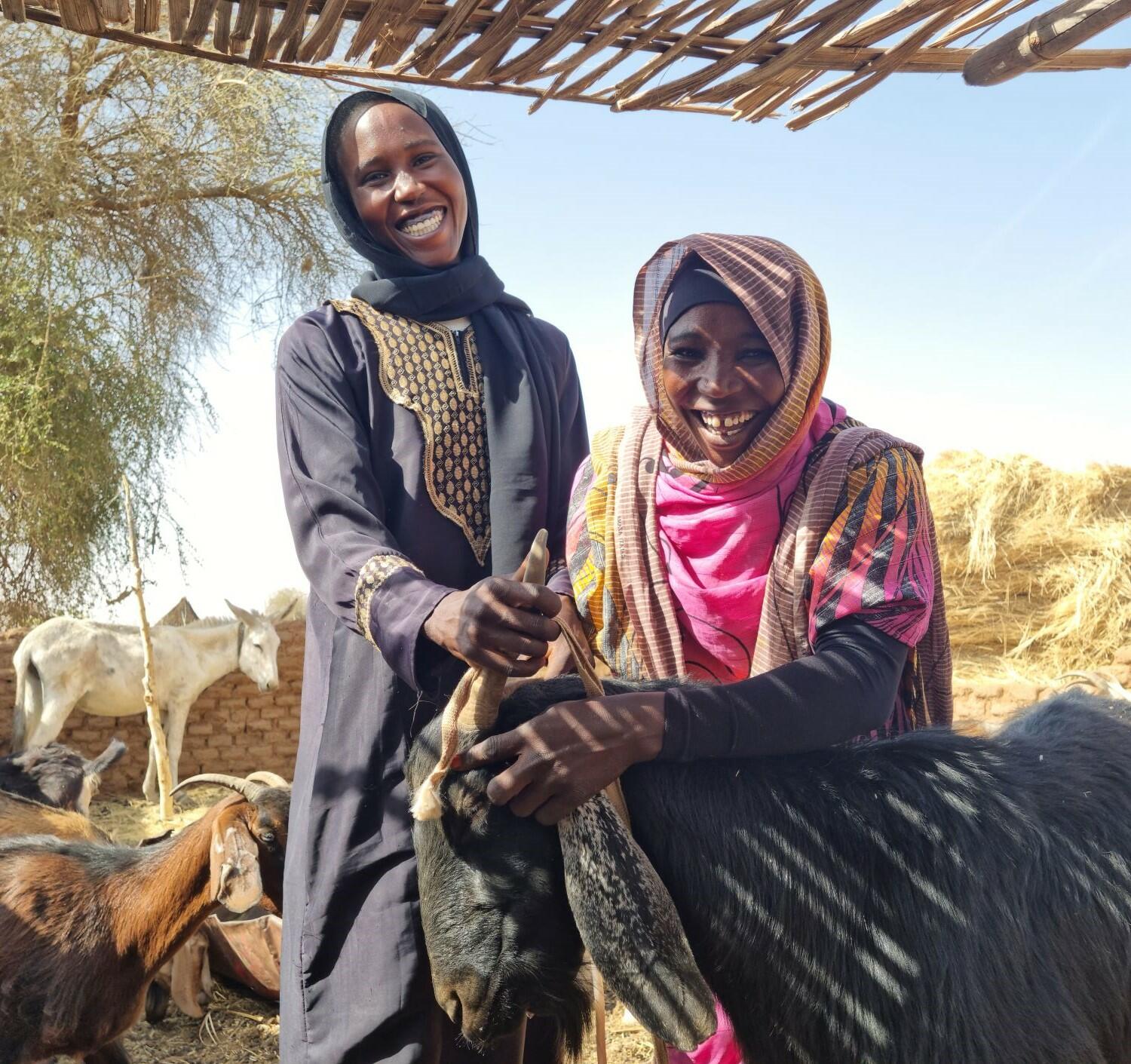Even though the climate is changing here, the new ways of farming we are learning allow me to continue to sow and harvest. I am optimistic for the future.
Al Hafiz, farmer in Magdoub village, Sudan
in North Darfur
Practical Action worked with communities to address its devasting effects. Working closely with the communities, we contributed to peace and prosperity by transforming deserts into green fields to feed families and forests to combat desertification.
Climate change is turning fertile land in North Darfur into desert.
Unpredictable rains and prolonged droughts are making it harder to grow food and raise animals. Many families are being forced to leave their homes, leading to tensions and even conflict over limited natural resources.
The long-running conflict in Darfur, driven by competition for land and water, is getting worse due to extreme weather. Flash floods and dry spells are making farming nearly impossible, and food insecurity is growing.
To survive, people are cutting down trees for firewood and overusing land. But these short-term fixes cause deforestation, soil loss, and desertification. Farmers are forced to expand into new areas, which creates conflict with pastoralists whose grazing lands are shrinking.
Women and girls are hit hardest.
They spend long hours collecting firewood and water, often walking far and facing danger. They also carry the burden of farming and feeding their families with fewer and fewer resources.
North Darfur is trapped in a worsening cycle—where climate and conflict feed into each other, destroying lives and futures.

Title: Building Climate & Conflict Resilient Livelihoods for Rural Communities in Wadi El Ku, North Darfur, Sudan, using Integrated Water Resource Management
Dates: June 2020 – September 2023
Location: 19 communities in El Fashir, North Darfur
Our role: We support communities adapting and prospering in new climate realities through an ingenious combination of irrigation technology, farming training and peacebuilding.
Participants: 35,600 people living in 19 villages, including nomadic and agropastoral household
Project budget:£1,633,483
Theme: Climate resilience
Lead donor: UK Aid
From water capture to irrigation, knowledge building to reforestation, we work with communities living in poverty to adapt and flourish in the new climate reality.
Practical Action supports communities in North Darfur to achieve peace and prosperity by transforming what was once a desert into green fields and forests. Our proven ingenious solutions aim to tackle the problems faced by people in North Darfur by:
Even though the climate is changing here, the new ways of farming we are learning allow me to continue to sow and harvest. I am optimistic for the future.
Al Hafiz, farmer in Magdoub village, Sudan
Our goal is for rural populations, agriculturalists and pastoralists to achieve resilient livelihoods to the effects of climate change and conflict.
This project contributes to progress against the 17 SDGs.
Goal 1: No Poverty
Empower women more socially and economically through developing their food processing, dairy and high production skills to improve their livelihoods.
Goal 2: Zero Hunger
Farmers are trained in advanced agriculture techniques that will enable them to increase productivity and generate more income.
Goal 13: Climate Action
The project contributes to the efforts of adapting to climate change with local adaptation strategies.
Goal 15: Life on Land
This project addresses issues related to desertification and land degradation, promoting sustainable land management.
Help us work with communities to tackle some of the world’s toughest problems.